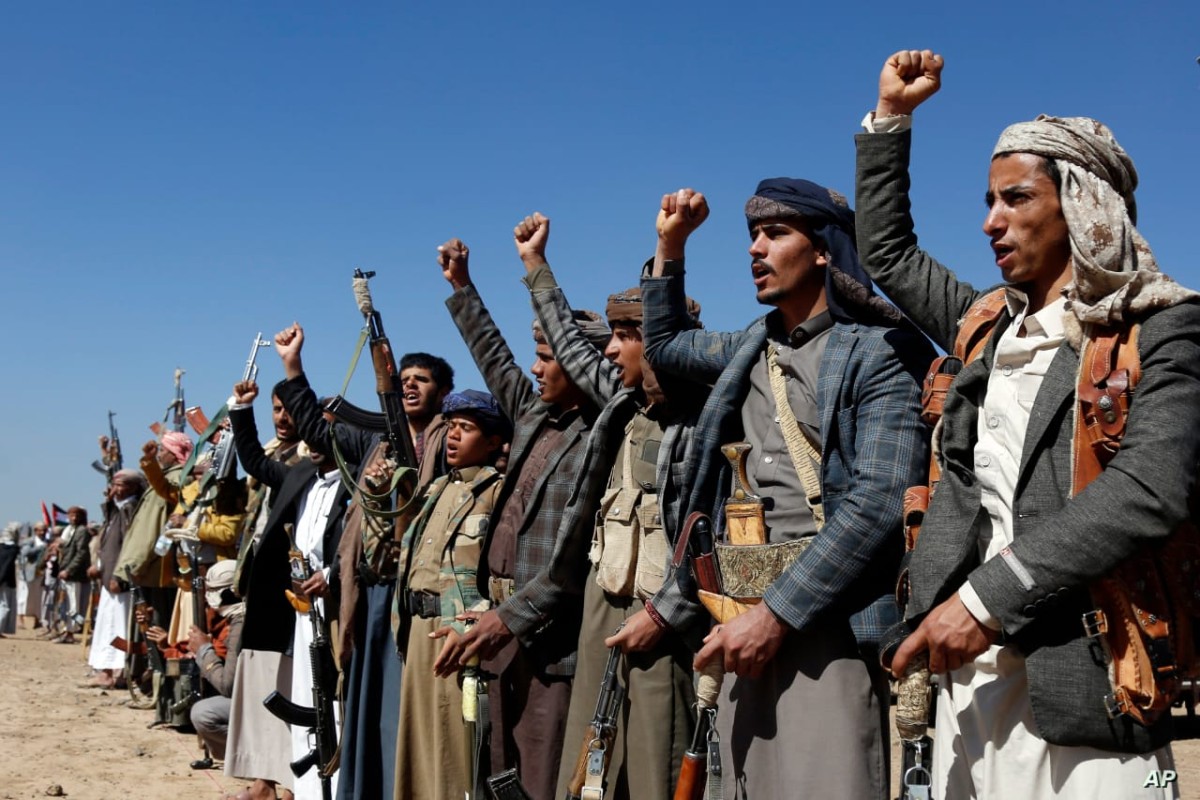Developments in Syria frighten the Houthis... emergency for fear of a Yemeni uprising


The Houthi militias imposed an undeclared state of emergency in the areas under their control in northern Yemen, to confront any internal uprisings to end their disastrous coup.
The militias are moving under Iranian directives on 3 tracks in various unliberated governorates, as the group’s leader assigned his uncle Abdul Karim al-Houthi the task of preparing an emergency plan to confront the popular incubators in the cities, according to sources who spoke to Al-Ain News.
As for the second track, according to the same sources, it aims to ensure the loyalty of the tribes through intimidation and enticement, a task assigned to him by the militia leader, his cousin Muhammad Ali Al-Houthi, along with others, including Youssef Al-Fishi, his most dangerous man, while the last track is undertaken by the so-called Security and Intelligence Service and stipulates restricting the movements of the leaders. Civil and political, including ministers of the unrecognized coup government.
Emergency meeting
Yesterday, Sunday, the uncle of the militia leader, Abdul Karim al-Houthi, held an emergency meeting with all the security leaders of the militias under the name “Ministry of Interior” in order to impose a state of emergency in the areas of the coup plotters.
Al-Ain News learned from security sources in Sana'a that the meeting came as a result of the Houthi militia's fears of street resentment and to confront any revolution from within that would overthrow its rule of influence. It also fears the impact of the Syrian earthquake on the Yemeni reality.
According to the sources, the Houthi militias discussed during this meeting “preparing an emergency plan and a security deployment plan in all governorates subject to the coup plotters to confront what Abdul Karim Al Houthi called “malicious conspiracies.”
The leaders of the Houthi security militias also discussed “the possibility of imposing a curfew from six in the evening to five in the morning in various unliberated governorates, including Sana’a, according to the same sources.
The sources indicated that "the leaders of the Houthi militias discussed the possibility of the Ministry of the Interior accommodating the coup plotters, community security elements, who are militia followers deployed in residential neighborhoods responsible for carrying out several tasks."
Precautions
The so-called Security and Intelligence Service, led by Abdul Karim Al-Khaiwani, had prevented political and civil leaders, including the prime minister and prime minister of the coup government, from any movement at the governorate level and even the security squares.
The Houthi militias took this measure, which includes restricting the movements of their leaders and social and political figures, just hours after the Syrian armed factions announced the overthrow of President Bashar al-Assad’s regime and the entry of Damascus.
The Houthi militias followed this development in Syria by moving towards tribal control in the countryside and cities by pumping millions of riyals to tribal leaders, taking their sons hostage, and demanding partnership on the front lines.
According to the sources, the personal representative of the militia leader, Youssef al-Fishi, his cousin, the influential leader Muhammad Ali al-Houthi, the commander of the so-called support and support forces, Qasim al-Hamran, and others continue to pressure the tribal leaders in an effort to win them over or prevent them from participating in any battle to end the rule of the Houthi militias.< /p>